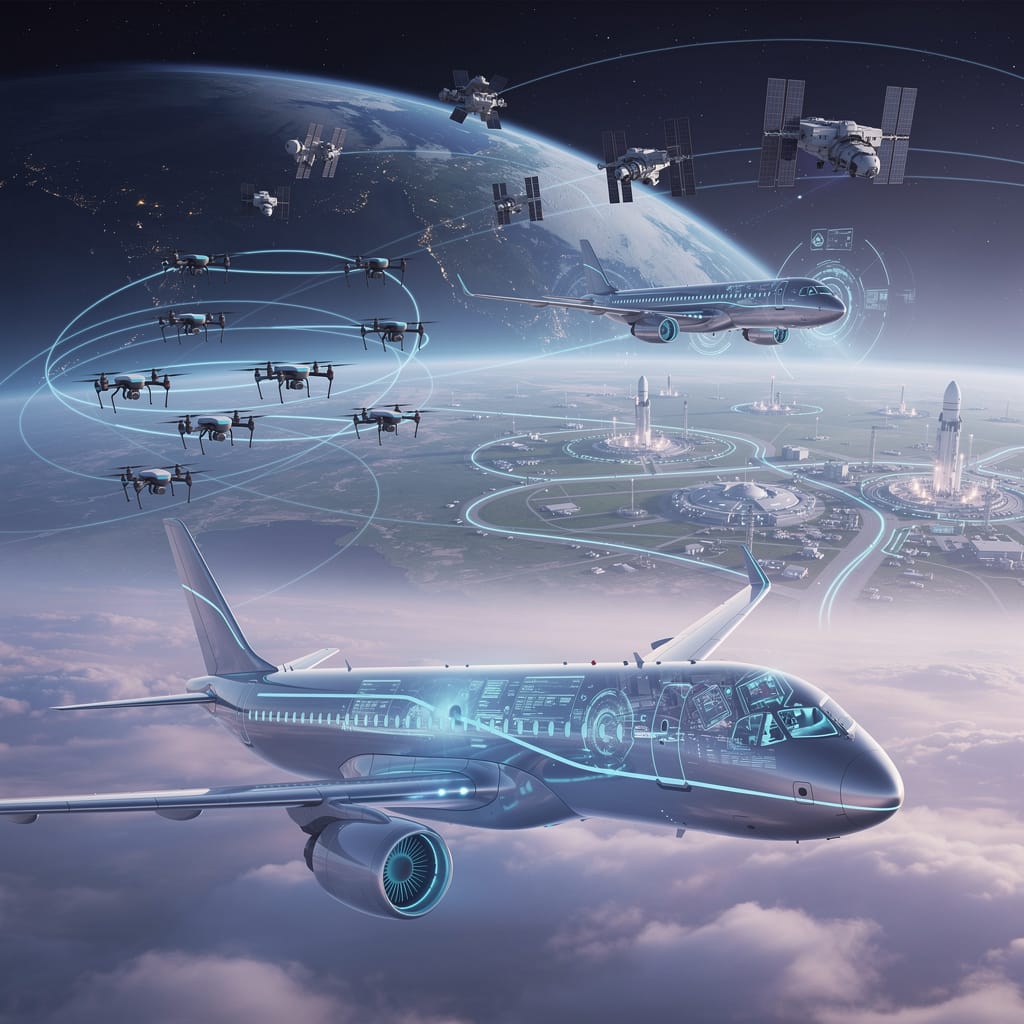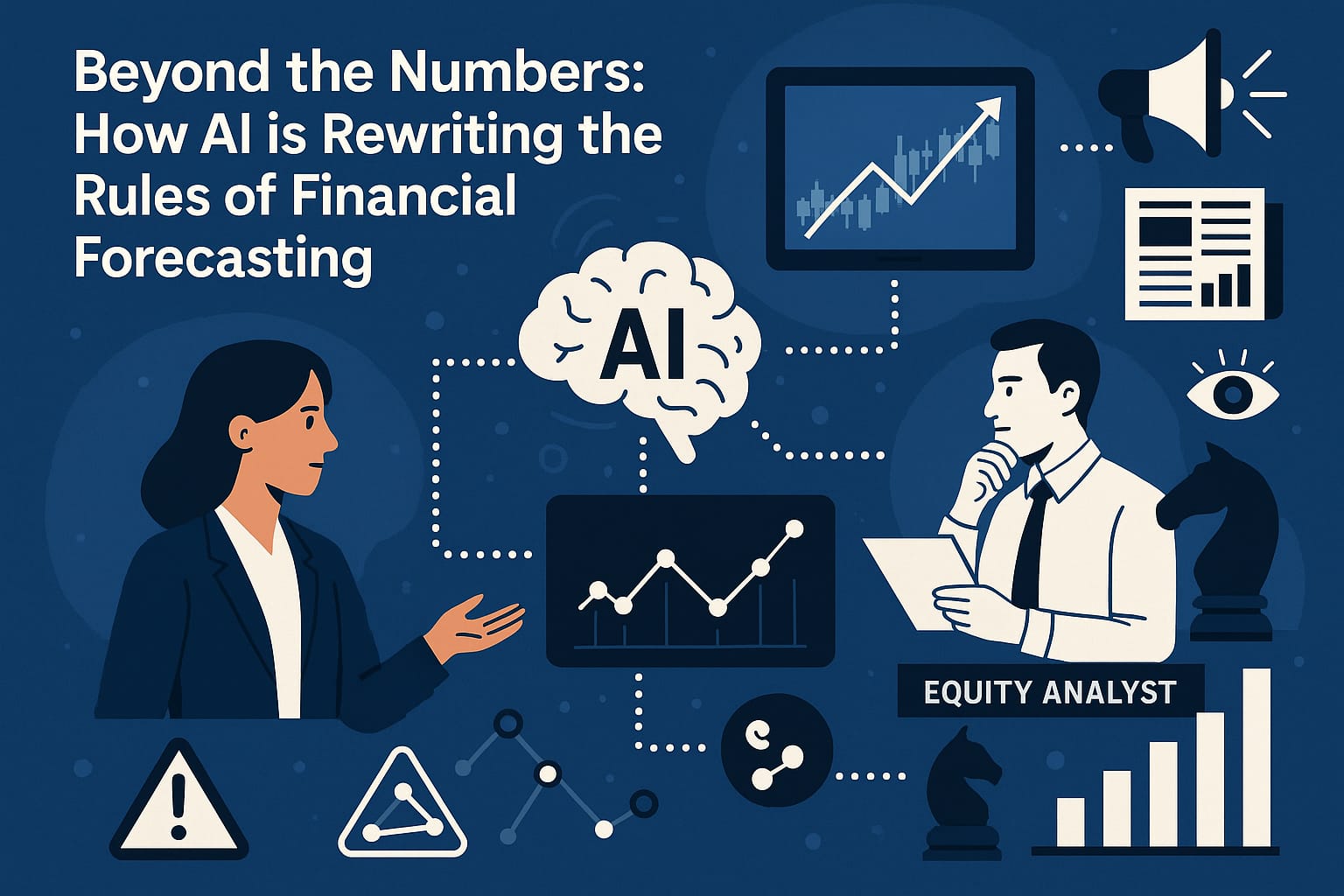AI and International Trade
Questions regarding AI and international trade
- How is AI changing international trade patterns and the efficiency of supply chains?
- How is the global competitive landscape affected by the integration of AI in international trade?
- How can governments develop policies to support AI-enabled international trade while addressing potential risks?
- How can AI be used to improve cross-border data flows and reduce barriers to trade?
- What are the ethical implications of AI adoption in international trade and how can they be addressed?
- How can small and medium-sized enterprises (SMEs) leverage AI to compete in the global marketplace?
- How can AI help to address challenges such as regulatory compliance and risk management in international trade?
- How is AI affecting the role of human labor in international trade, and what policies are needed to ensure fair and equitable outcomes?
- How can international organizations collaborate to ensure responsible and beneficial use of AI in global trade?
In some countries there are social taxes for social securities, in others not, how can AI compensate unfair trade
AI cannot directly compensate for differences in social taxes between countries as social tax policies are determined by national governments and vary based on their social, economic, and political context. However, AI can be used to help address some of the challenges that arise from disparities in social taxes.
For example, AI-powered tools can help businesses analyze and compare the costs and benefits of different tax and regulatory environments in different countries, allowing them to make informed decisions about where to locate their operations. Additionally, AI can help businesses optimize their operations to minimize the impact of social taxes, such as by automating routine tasks that are subject to high labor taxes.
Furthermore, AI can help to reduce inequalities that arise from differences in social taxes by improving access to education, training, and skills development. AI-powered learning platforms can provide high-quality training and education to workers across different countries, which can help them to develop the skills and knowledge needed to compete in the global marketplace. This can help to reduce the impact of social taxes on employment opportunities and increase economic opportunities for workers in countries with higher social taxes.
While AI cannot directly compensate for differences in social taxes, it can help to mitigate some of the negative effects of those differences and promote more equitable outcomes in the global economy.
Can international social taxes help in fair production and loans
International social taxes are designed to promote social security and provide a safety net for citizens of a given country. While they may indirectly contribute to fair production and loans, their primary goal is to fund social welfare programs such as healthcare, education, and retirement benefits.
However, some international organizations and initiatives do aim to promote fair production and loans, which can help to address issues such as labor rights, working conditions, and environmental sustainability in global supply chains. For example, the International Labour Organization (ILO) sets labor standards and provides guidance on fair labor practices. The World Trade Organization (WTO) also has various agreements in place to promote fair trade practices and prevent unfair competition.
In addition, there are various international initiatives aimed at promoting responsible lending and investment practices, such as the Equator Principles and the United Nations Principles for Responsible Investment (PRI). These initiatives promote environmental, social, and governance (ESG) factors in investment decision-making and help to ensure that financing supports sustainable development and positive social outcomes.
While international social taxes may not directly contribute to fair production and loans, initiatives such as these can help to promote more responsible and sustainable economic practices, which can benefit both producers and consumers in the long run.
We see a migration of production to avoid social taxes, putting heavy load on workers of that country as well…
It is true that some companies may choose to relocate their production to countries with lower social taxes in order to reduce their costs. This can result in a heavy burden on workers in the destination country, who may be subject to poor working conditions, low wages, and limited social protections.
This phenomenon is known as “social dumping”, and it can have negative consequences for both workers and the global economy as a whole. Social dumping can lead to a race to the bottom in terms of labor standards, as countries compete to attract investment by lowering their social taxes and regulatory requirements. This can result in a downward spiral of wages and working conditions, with workers in both the origin and destination countries suffering as a result.
AI can play a role in addressing the negative effects of social dumping by promoting more transparent and accountable supply chains. AI-powered tools can help companies to identify and mitigate labor risks in their supply chains, such as by monitoring working conditions and ensuring compliance with labor standards. Additionally, AI can help to promote better data sharing and collaboration between companies, governments, and civil society organizations, which can help to identify and address labor abuses more effectively.
Overall, while social dumping remains a significant challenge in the global economy, AI can help to promote more responsible and sustainable production practices, which can benefit both workers and companies in the long run.
Social dumping and its side effects in both country of origin and country of destination
Social dumping is a practice that exploits workers and undermines fair competition in the global economy. It involves companies moving their production to countries with lower social taxes and weaker labor protections, in order to reduce their costs and increase their profits. However, the negative consequences of social dumping are felt by workers in both the origin and destination countries.
In the origin country, social dumping can lead to job losses and reduced income for workers, as companies relocate their production to countries with lower social taxes. This can have a devastating impact on local communities and contribute to widening income inequality.
In the destination country, workers are often subject to poor working conditions, low wages, and limited social protections. They may be forced to work long hours in unsafe conditions, with little or no access to healthcare or other social services. This not only undermines the dignity and well-being of workers but also creates an uneven playing field for companies that are committed to fair labor practices.
Furthermore, social dumping can lead to a race to the bottom in terms of labor standards, as countries compete to attract investment by lowering their social taxes and regulatory requirements. This can result in a downward spiral of wages and working conditions, with workers in both the origin and destination countries suffering as a result.
Social dumping is a practice that undermines fair competition, exploits workers, and creates a race to the bottom in terms of labor standards. It is time for companies to take responsibility for their supply chains and ensure that they are not contributing to this harmful practice. Governments also need to take action to enforce labor standards and prevent social dumping, in order to protect the dignity and well-being of workers around the world.

Thank you for questions, shares and comments!
Share your thoughts or questions in the comments below!
Text with help of openAI’s ChatGPT Laguage Models & Fleeky – Images with help of Picsart & MIB





